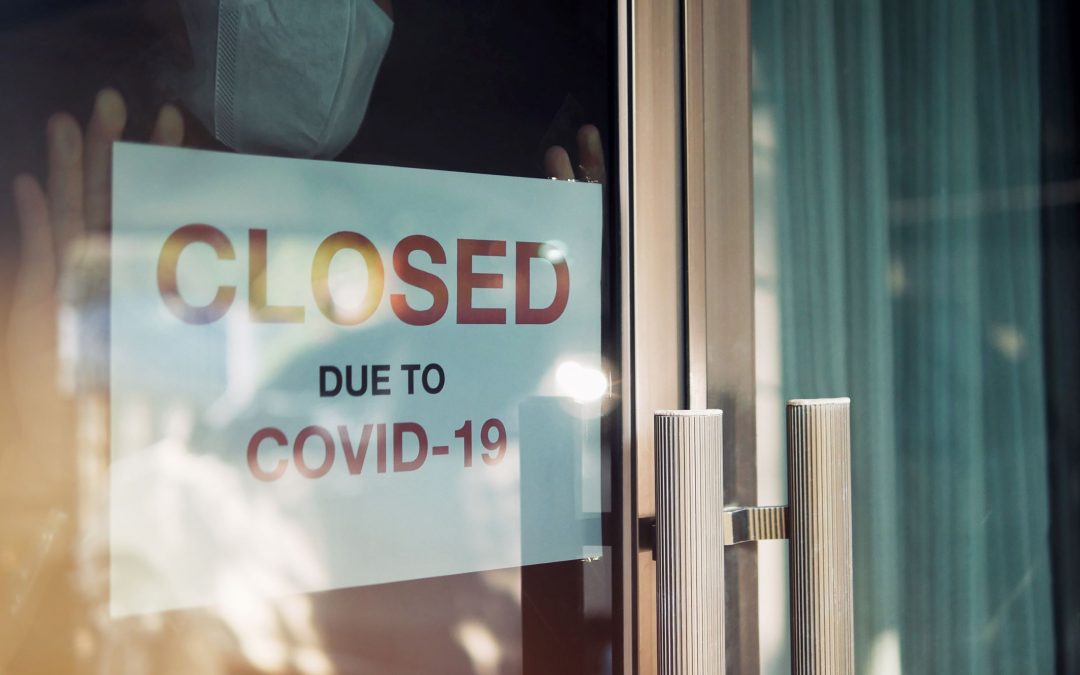Much of the country is coming out of lock down, but millions of small business owners are facing financial difficulties. For those with business interruption insurance policies in place, now may seem like the ideal time to submit a claim.
However, as it stands currently, there’s much disagreement regarding whether business interruption insurance policies should cover loss of income triggered by the
pandemic.
How Insurance Companies View the Pandemic
Some insurance companies are claiming the legal defense of “force majeure.” This refers to a situation where unexpected external circumstances prevent a party to a contract, in this case, the insurance company, from meeting their obligations.
In addition, many insurance companies note that business interruption policies provide coverage when a policyholder suffers a loss of income as a result of physical loss or damage to covered property. According to their interpretation, COVID-19 doesn’t qualify as a physical loss.
Insurers also highlight the fact that policies don’t cover loss of income due to market conditions, an economic slowdown or concerns regarding contamination. They claim that policies don’t provide coverage for government actions designed to limit the spread of COVID-19.
On April 6, the American Property Casualty Insurance Association (APCIA), the primary national trade association for home, auto and business insurers, issued the following statement: “Many commercial insurance policies, including those that have business interruption coverage, do not provide coverage for communicable diseases or viruses such as COVID-19. Pandemic outbreaks are uninsured because they are uninsurable.”
The APCIA concludes, “Any action to fundamentally alter business interruption provisions specifically, or property insurance generally, to retroactively mandate insurance coverage for viruses by voiding those exclusions, would immediately subject insurers to claim payment liability that threatens solvency and the ability to make good on the actual promises made in existing insurance policies.”
Policyholders Object
On the flipside, attorneys representing business owners in a growing number of lawsuits against insurance companies state that the existence of SARS, MERS and the Avian flu have given insurance companies ample opportunity to predict a subsequent global pandemic involving another virus.
As it relates to need for a physical loss to occur to trigger payments under the policy, plaintiffs note that the virus can attach itself to physical surfaces. Therefore, viruses cause physical loss that would require cleaning to remove.
To complicate matters further, lawmakers in several jurisdictions are considering passing bills to force insurance companies to pay for COVID-19-related losses under business interruption insurance policies.
Proactive Measures
While courts and lawmakers are addressing these issues, companies that have a business interruption policy in place should consider taking the following steps:
Review your policy in detail.
Contact your insurance company and ask for a complete copy of your policy, if you don’t have one. Pay close attention to the type of losses covered, as well as the policy’s exclusions and limitations. Also consider asking your attorney to review the policy, because the language and structure can often create confusion.
Determine the notification period.
To ensure timely claims submission, many policies require policyholders to notify their insurance company of a loss within a certain time period. Make sure you comply within the prescribed time frame. Document compliance in your business records and send an email or letter to your insurance company.
Build your case.
The success of a business interruption claim depends on your ability to document the impact of COVID-19 on your business. Prepare a file that documents the financial impact of the pandemic. Be sure to include the loss of income (as defined by your policy), customer attrition rates and incremental expenses incurred (such as site security or cleaning services).
As litigation winds its way through the court system and legislators consider steps to compel insurance companies to honor claims, your insurance company will probably deny your COVID-19-related claim. But filing it now establishes your company’s rights to contest the claim as the legal landscape evolves.
We are here to help answer all of your accounting and advisory needs. Fill out the form below and we’ll get in touch with you.
Contact Us
© Copyright 2020 Thomson Reuters.
Disclaimer of Liability
Our firm provides the information in this article for general guidance only, and does not constitute the provision of legal advice, tax advice, accounting services, investment advice or professional consulting of any kind. The information provided herein should not be used as a substitute for consultation with professional tax, accounting, legal or other competent advisors. Before making any decision or taking any action, you should consult a professional advisor who has been provided with all pertinent facts relevant to your particular situation. Tax articles in this blog are not intended to be used, and cannot be used by any taxpayer, for the purpose of avoiding accuracy-related penalties that may be imposed on the taxpayer. The information is provided “as is,” with no assurance or guarantee of completeness, accuracy or timeliness of the information, and without warranty of any kind, express or implied, including but not limited to warranties of performance, merchantability and fitness for a particular purpose.
Blog
Nonprofit Insights

